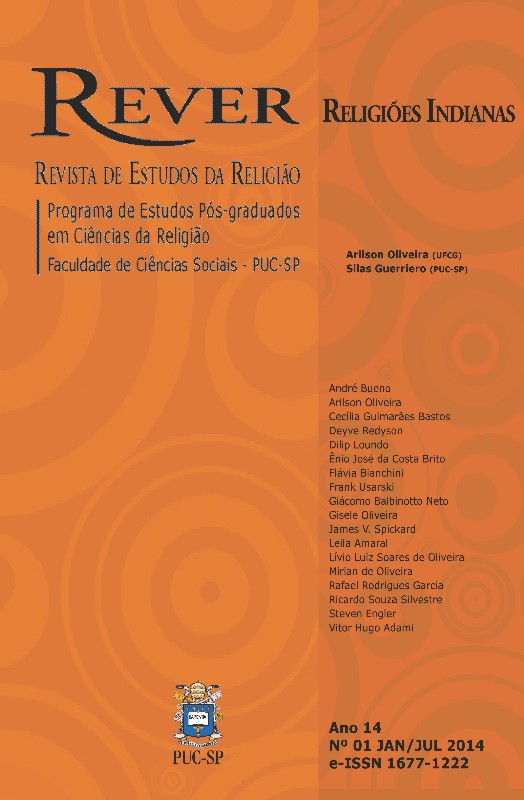O Método de Racionalização de Weber e a Não Institucionalização de Dumont: Uma Visão sobre o Hinduísmo e o Vedanta
Palavras-chave:
Hinduísmo, Índia, Vedanta, Weber, DumontResumo
Weber descreve que o “racionalismo” concerne à rejeição de todas as formas irracionais de busca do sagrado e que o ascetismo indiano foi o “mais racionalmente desenvolvido no mundo”. O ponto que Weber defende é que o “laicismo culto” da Índia antiga desenvolveu uma “soteriologia livre de padres”, parcialmente entregue a um ceticismo religioso. Essa parece ter sido a pista de Weber da qual partiu Dumont a fim de desenvolvê-la em “homo hierarchicus”, e é com esta intenção que desenvolvo o pensamento deste último autor sobre o poder nas sociedades tradicionais de castas e a consequente desinstitucionalização do Hinduísmo. Busco compreender em que sentido Dumont afirma existir uma democratização da instituição e o significado do renunciante como dotado de uma individualidadeMétricas
Carregando Métricas ...
Downloads
Publicado
2014-06-30
Como Citar
Bastos, C. G. (2014). O Método de Racionalização de Weber e a Não Institucionalização de Dumont: Uma Visão sobre o Hinduísmo e o Vedanta. REVER: Revista De Estudos Da Religião, 14(1), 77–93. Recuperado de https://revistas.pucsp.br/index.php/rever/article/view/20289
Edição
Seção
Seção Temática
Licença

Este trabalho está licenciado sob uma licença Creative Commons Attribution-NonCommercial 4.0 International License.
Autores que publicam nesta revista concordam com os seguintes termos:
- Autores mantém os direitos autorais e concedem à revista o direito de primeira publicação, com o trabalho simultaneamente licenciado sob a Licença Attribution-NonCommercial 4.0 International, que permite o compartilhamento do trabalho com reconhecimento da autoria e publicação inicial nesta revista.
- Autores têm autorização para assumir contratos adicionais separadamente, para distribuição não exclusiva da versão do trabalho publicada nesta revista (ex.: publicar em repositório institucional ou como capítulo de livro), com reconhecimento de autoria e publicação inicial nesta revista.


